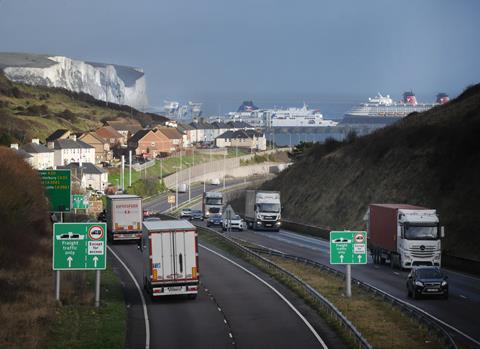
The UK government’s much-vaunted post-Brexit border strategy is “inadequate” and “failing to provide a robust, risk-based regime of inspections”, a scathing new report by MPs has revealed.
Just days after it warned the UK was critically exposed to illegal smuggling, a new report, published by the Commons Environment, Food & Rural Affairs Committee, warned the Border Target Operating Model (BTOM) was “flawed”. A series of issues with the strategy meant it presented “real threats to the health of UK animals and plants and therefore the viability of our agricultural and horticultural sectors”, the report noted.
Raising further questions about the robustness of the UK’s border infrastructure, the new Efra report, titled UK-EU Trade: Towards a Resilient Border Strategy, revealed that the previous government’s vision for BTOM had “not been realised”.
That vision, first outlined in 2020, set out to deliver “a world-class, simplified, proportionate, and digitalised biosecure border”, said the report, while also protecting public health, supporting prosperity and “enabling security for a global United Kingdom”.
However, what would become the BTOM had “fallen short of expectations due to inconsistent enforcement, flawed digital systems, inadequate consultation and limited support for local authorities”, MPs on the committee said, with the majority of businesses using the system having “no confidence” it was operating fairly.
The “shortcomings” in the UK’s biosecurity systems were particularly exposed following the introduction of an import ban on German food products, following outbreaks of foot & mouth disease in Europe at the turn of the year.
“Our committee found that imports within the scope of disease control measures were being automatically cleared through the UK border for six days until digital systems were updated,” the paper claimed. “As such, it is only by good fortune that the UK was saved from a potentially devastating outbreak of foot and mouth disease.”
Alongside “flawed IT systems and data gaps”, other concerns highlighted by the report included “numerous problems” with operations of commercial border controls – particularly in the Short Straits, between the Kent coast and northern France.
Read more: UK woefully exposed to illegal meat smuggling, damning Efra Committee report warns
The committee said it received “specific and repeated concerns” that the unique location of the Sevington Inland Border Control Post, some 22 miles from the from the Port of Dover, “provides opportunities for exploitation by criminals”.
Concerns included “conflicting views and a lack of clear guidance” of what was required of vehicles entering the UK via the Short Straits. The report highlighted how Ashford Council had told the National Audit Office that lorries should be sealed at origin by the operator and should remain sealed until they reach the BCP, with the council following up on any vehicle that does not arrive.
However, Defra told the NAO that it did not consider commercial seals to increase the security of vehicles and that it was not aware of any legal requirement for vehicles to be sealed.
Stakeholders also warned Efra that conducting checks away from the point of entry “weakens enforcement and increases the risk of illegal goods, including meat, entering the country through commercial import routes”.
“If a consignment is notified to present for checks at Sevington inland BCP, there is the potential for goods to be offloaded en-route or for complete non-attendance,” the report warned.
Criminals ‘gaming’ inspection regime
Echoing last week’s report on meat smuggling, the Committee also found that varying inspection rates at different ports of entry had “created a system that can be gamed by people seeking to dodge costs or import illegal goods – thus jeopardising biosecurity and damaging trust in the system amongst law-abiding compliant businesses”.
MPs additionally expressed doubt over the explanations given for Defra’s reluctance to publish inspection rates – saying that they were “not convinced a lack of published data on the inspection rates is due to a desire to protect the integrity of the intelligence system”.
“We have concerns that they are not being published to avoid highlighting Defra’s historic non-compliance with its own targets,” the committee suggested.
Referring to the ongoing debate about the design of BTOM by previous administrations, the report noted that “the question of adequacy of the system is largely academic; without effective delivery, even a well-designed model cannot achieve its intended outcomes”.
And while the May reset deal between the EU and promise of a new sanitary and phytosanitary (SPS) area was welcome, the UK “will continue to rely on the present system of biosecurity controls until an agreement is reached”, the report warned.
“Delivering a border system that is truly effective, efficient, and equitable will require sustained investment, meaningful engagement, and a commitment to learning from the lessons of the past.”
What’s going wrong with the Windsor Framework?
The committee’s enquiry did find “high compliance by law-abiding companies”, said Efra chair Alistair Carmichael MP.
“The other side of the coin is enforcement by the relevant authorities, and here we found that, despite the best efforts of the operating teams and management, the operations are failing, leaving the UK’s biosecurity at serious risk and allowing opportunities for criminal enterprise.”
In response, a Defra spokesperson said the claim meat from Germany continued to come through the UK border after the foot & mouth ban was “untrue”, with additional measures and “robust biosecurity controls” superseding auto-clearance.
“Rebuilding the UK’s biosecurity remains a key government priority, and we are investing £1bn in a new National Biosecurity Centre to boost our world-leading facilities and protect our farmers, food supply and economy,” they added.
A spokesperson for the Chartered Institute of Export & International Trade told The Grocer it was “not surprised” by Efra’s findings. “They reflect a lot of the challenges that our members have reported to us since the full implementation of the BTOM.”
Phil Pluck, CEO of the Cold Chain Federation, also bemoaned the issues with the border strategy.
“I have lost count of the hours of meetings we have endured where we presented these issues, and the reality is that we are in a mess because industry wasn’t consulted in its design and then Defra failed to act on the experiences of industry once it went live,” he said.
“The mess and confusion has benefited just one party only; the criminal element who seek to bring highly dangerous meat products into the country,” he added. ”The figures for seizures confirm this.
“And the cost imposed on business whilst imposing flawed systems has been enormous. This has real consequences with food producers deciding enough is enough and leaving the import/export market whilst food inflation increases as a result.”







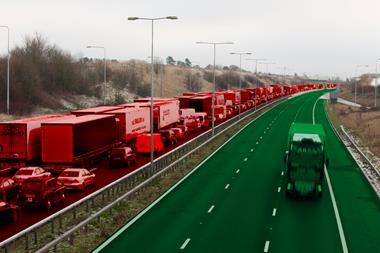
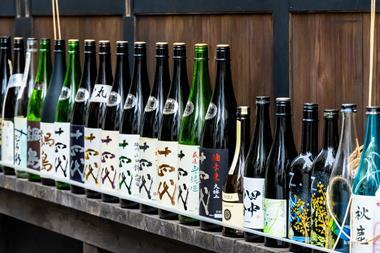
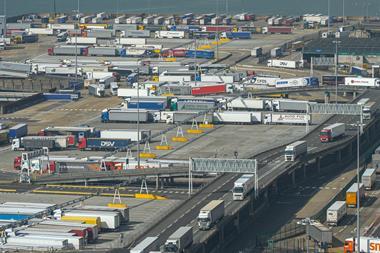

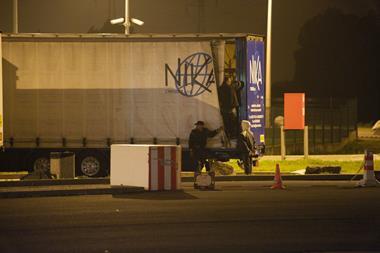
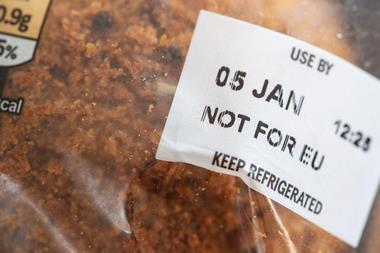

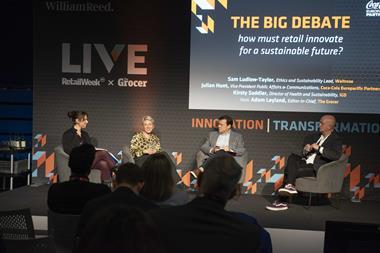




No comments yet